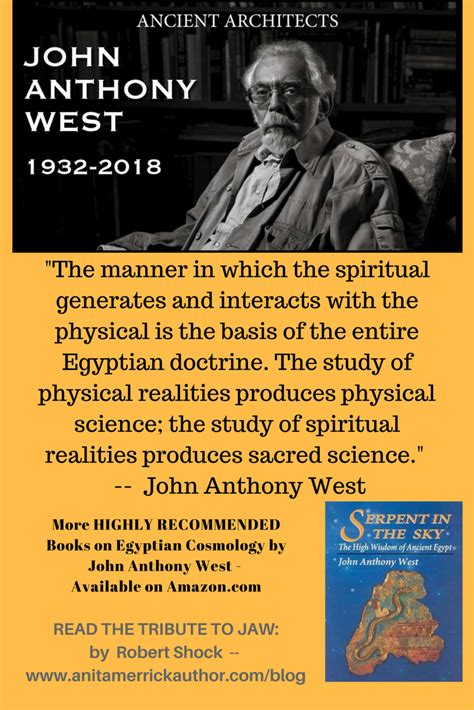A Quote by Albert Pike
It is not in the books of the Philosophers, but in the religious symbolism of the Ancients, that we must look for the footprints of Science, and re-discover the Mysteries of Knowledge.
Related Quotes
Symbols and emblems were everywhere. Buildings and pictures were designed to be read like books. Everything stood for something else; if you had the right dictionary, you could read Nature itself. It was hardly surprising to find philosophers using the symbolism of their time to interpret knowledge that came from a mysterious source.
I conclude that, while it is true that science cannot decide questions of value, that is because they cannot be intellectually decided at all, and lie outside the realm of truth and falsehood. Whatever knowledge is attainable, must be attained by scientific methods; and what science cannot discover, mankind cannot know.
In my view, The Temple of Man is the most important work of scholarship of this century. R. A. Schwaller de Lubicz finally proves the existence of the legendary 'sacred science' of the Ancients and systematically demonstrates its modus operandi. It was this great science-based upon an intimate and exact knowledge of cosmic principles-that fused art, religion, science, and philosophy into one coherent whole and sustained Ancient Egypt for three thousand years.
Science only means knowledge; and for [Greek] ancients it did only mean knowledge. Thus the favorite science of the Greeks was Astronomy, because it was as abstract as Algebra. ... We may say that the great Greek ideal was to have no use for useful things. The Slave was he who learned useful things; the Freeman was he who learned useless things. This still remains the ideal of many noble men of science, in the sense they do desire truth as the great Greeks desired it; and their attitude is an external protest against vulgarity of utilitarianism.
Science is one thing, wisdom is another. Science is an edged tool, with which men play like children, and cut their own fingers. If you look at the results which science has brought in its train, you will find them to consist almost wholly in elements of mischief. See how much belongs to the word "Explosion" alone, of which the ancients knew nothing.
The word spirit comes from the Latin word for "breath" - spiritu - and the origin of the word spirituality has to do with breath and life force, the mysteries of the ancients and all this. The word is very suspect in much of the art world - the Western art world. Certainly, spirituality has become divorced from religious.
Confronted with such a variety most philosophers try to establish one approach to the exclusion of all others. As far as they are concerned there can only be one true way- and they want to find it. Thus normative philosophers argue that knowledge is a result of the application of certain rules, they propose rules which in their opinion constitute knowledge and reject what clashes with them.




































